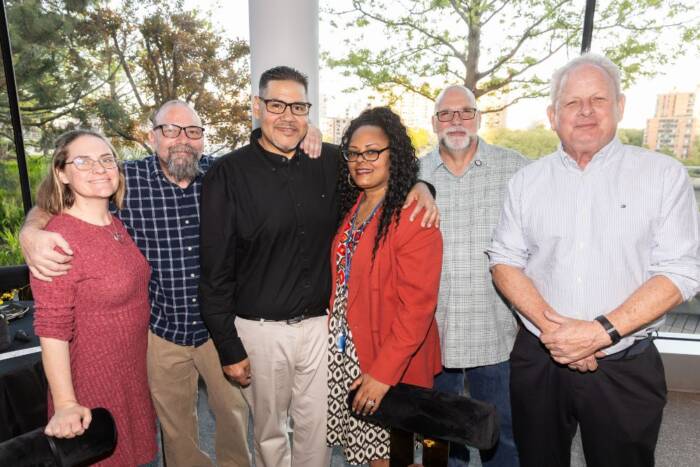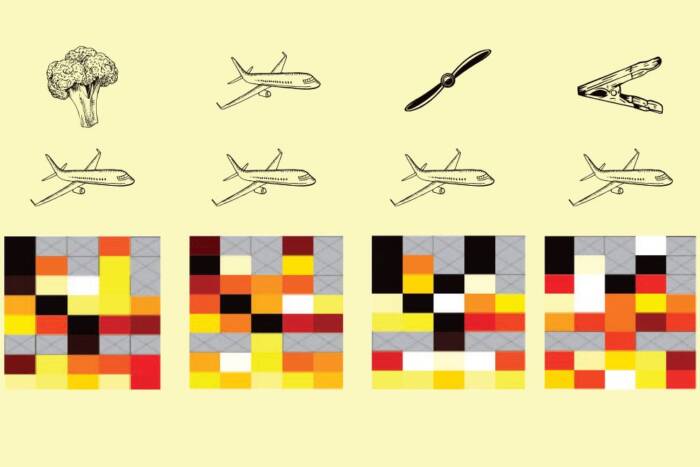Rockefeller launches startup incubator

Carlo Yuvienco
Something new is coming to the south side of The Rockefeller University campus this fall: the Ford Center Incubator. Part of the Ford Center for Life Science Innovation, the incubator—a light, bright, 8,000-square-foot space on the newly renovated fourth floor of the Bronk Laboratory building—will be the first facility of its kind on the Upper East Side, offering biotech entrepreneurs everything from laboratory workbenches to shared equipment and support services. The goal is to host 10 to 15 young startups at a time, fostering their early growth as they turn biomedical research breakthroughs into market-ready medical technologies.
Leading the new incubator is Director Carlo Yuvienco, a scientist, entrepreneur, and former New York City economic development specialist who stepped into the position in July. After earning his Ph.D. in biomedical engineering at New York University, Yuvienco spun his research out into a biotech start-up company in 2015, an experience that taught him how to think like a biomedical entrepreneur—a role that encompasses everything from identifying a market and finding investors to hiring staff and developing a viable product.
“With a Ph.D. you learn a lot about one thing in particular,” Yuvienco says. But when you make the leap to entrepreneurship, “you zoom out and realize there’s so much you don’t know about many other things.”
When he joined New York City’s Economic Development Corporation (EDC) in 2016, Yuvienco learned how to support other founders and their fledgling biotech startups—knowledge he will now bring to the Ford Center Incubator. We recently caught up with Yuvienco to learn more about how the new facility will help researchers succeed as startup founders, and the impact that will have not just on Rockefeller, but also the broader Tri-Institutional (Tri-I) community and New York City as a whole.
Translating basic scientific discoveries into marketable medical products is tough, and many biotech startups fail. How will the incubator help get basic research from bench to bedside?
We studied this at length when I was at the EDC, and we found that incubators would naturally take root in proximity to academic clusters. It’s true that academic institutions can only take science up to a certain point, and there comes a time when the maturation of science and technology must move beyond the invisible walls of the academy; but as cutting-edge science is spun out to feed the creation of a startup, there is this period of time when the company is still fragile. That’s when being close to academic institutions and basic research scientists, with their vast resources and wealth of expertise, can help.
And this incubator will not only help support startups that emerge from Rockefeller, but also from the many other biomedical institutions on the Upper East Side, including our partners in the TRI-I community, Weill Cornell Medicine and the Memorial Sloan Kettering Cancer Center.
Given that this new incubator will be one of many in New York City, what will it add to the local entrepreneurship ecosystem?
A huge part of this boils down to location.
For instance, Rockefeller’s Comparative Bioscience Center, which provides a tremendous amenity for a lot of early-stage biotech companies. In fact, startups at other incubators in the city have historically availed themselves of Rockefeller’s animal facility; but that arrangement has always been less than ideal given the split across locations.
And simply by virtue of being on the Rockefeller campus, our facility is close to a number of other institutions on the Upper East Side that aren’t being optimally served by the city’s existing incubators. Those include not just Weill Cornell Medical College and Memorial Sloan Kettering, but also the Hospital for Special Surgery, the New York Blood Center, and Cornell Tech, which is just a subway stop away.
If you are a scientific founder who wants access to top-notch biomedical institutions, this incubator provides a very special strategic location, especially in the early stages of development. And that’s good for the New York City biotech startup scene in general.
What’s your vision for the new incubator?
This will be a place where companies will grow fast and either fail quickly—so that founders can move on to the next project—or thrive and graduate to a larger space outside of the academic campus. We really want it to feature top-quality science from biomedical institutions across the city. And it is going to operate as a nonprofit, so it will be as affordable and accessible as possible.
The goal is to service that earliest stage of startup formation, where the risk is really high and the teams are small, lean, and hungry. That’s the point where funders and venture capitalists are as interested in the science as they are in the business development aspects of growing a small company, which only adds to the advantage of being embedded in a premier research institution that is itself located in a larger biomedical research cluster.
How will you define success? How will you know when you’ve hit your mark?
It really depends on a variety of factors.
We intend to track metrics such as occupancy and graduation rates, along with performance indicators like how much intellectual property from the TRI-I has advanced through the incubator.
But beyond the quality of the science and of the business model, we also want to make sure that we’re good community contributors. And I think success from that angle will be reflected less in the numbers than in the satisfaction of the tenants with the community that we build—a community where tenants can get the support they need, and where they can help each other.
One example would be service providers that can partner with the incubator. Maybe a tenant company needs assistance finding a Chief Financial Officer, or with legal services or financing—there’s a whole slew of advisors or investors that could participate in the community.
Another example would be nurturing mentor-mentee relationships between researchers and entrepreneurs who have already gone through the process of launching a startup and first-time founders who are just getting their feet wet. Those kinds of relationships can be invaluable, especially in the earliest stages of startup formation when there is often a great deal to learn.
What sort of companies do you think will be a good fit for the incubator?
It’s open to everyone. There’s going to be a natural preference for startups affiliated with Rockefeller or the TRI-I community; but beyond that, it will be the policy of the incubator to cater to external companies an amenity for the community at large.
We are also going to be selective: We’re not going to take anyone and everyone from Rockefeller that raises their hand and says, “Let’s start a company.” There will be scrutiny applied to the science and also to the legitimacy of the business and the promise of the business. But for those who do meet that selection standard, the incubator will be a tremendous resource for them.
How might the incubator expand access to career opportunities for aspiring entrepreneurs who are thinking of launching a startup or becoming involved with one?
The community here at Rockefeller, our partners in the TRI-I, and this entire neighborhood should know that there is now a resource to make all that just a bit easier for them, and a bit more real.
It starts with a conversation: a conversation about how to turn basic discoveries into treatments and technologies that can benefit humanity. And now there’s somebody in this new and unique position to have that conversation with, and to help forge a path toward that dream. It’s not a guarantee that it will be the path of least resistance, but it is a path.
I would love to provide the academic community at Rockefeller and the TRI-I at large with opportunities to engage not just with the tenants, but also with their visitors and guests: the people who are flocking to the density of innovation in this neighborhood. They could be venture capitalists, they could be representatives from government funding agencies, or they could be the founding scientists of these startups.
The opportunity to form those kinds of connections, to meet with people who can provide not only material or financial support but also the benefit of their wisdom and experience in building companies and translating research into a non-academic reality, is key to the entire entrepreneurial process; it’s the fuel that drives the whole ecosystem.
How can researchers apply to join the incubator?
This will be both a form-based application and a series of interviews. And it won’t be just me deciding: The process will be run by a selection committee made up mostly of external experts who will evaluate not just the science, but really the business of science. Applications will be accepted on a rolling basis and reviewed quarterly by the incubator’s leadership and a selection committee, with the first tranche of applications being accepted in December 2023 through early January 2024 and reviewed promptly thereafter. Future cycles of review will be made known via the incubator’s website at fci.rockefeller.edu.
When will you officially open for business?
Depending on the processing of our first set of applications in January 2024, we hope to provide prospective tenants with the ability to move in as early as February 2024.


